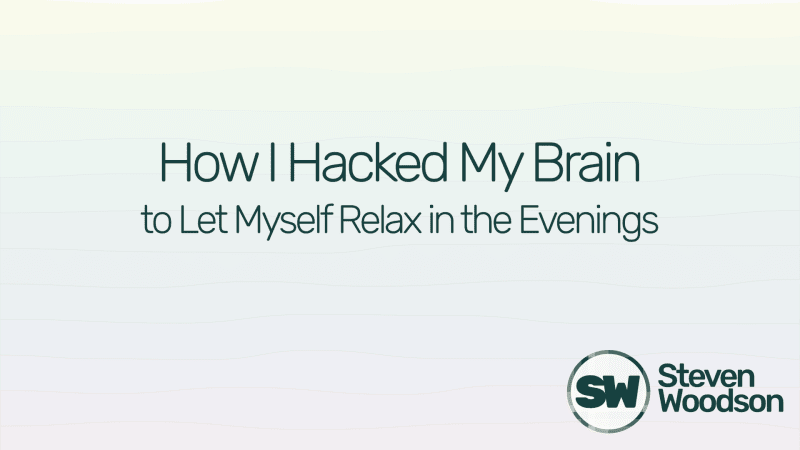Do you ever find yourself constantly on the go, always trying to be productive? I’ve struggled with this for most of my adult life, spending evenings checking off tasks on my to-do list, a blur of writing code and responding to emails. But after a while, I realized that this wasn’t sustainable. I was regularly anxious, tired, and felt like I couldn’t just relax and recharge. I also didn’t like the feeling that family and friends were getting the leftover time not otherwise spent in this productivity cycle.
The Impetus
I’ve been reading a whole lot of self help and productivity books the past few years. Largely as a shot of motivation to keep up the few “tricks” that have started to help me control that anxiety while still pursuing goals, but also out of a desire to find new or different tricks to try.
One concept that came up often in these books is around being intentional with your time, be it making time for what you consider important, removing what you don’t consider to be essential, or building resilience to distractions.
They all come down to taking charge of your time.
“You only waste time if you’re not intentional about how you spend it.”
Jake Knapp & John Zeratsky, Make Time: How to Focus on What Matters Every Day
How I took charge of my time
First, I had to come to terms with the fact that I have a strong need to feel productive. I’ve come to realize I can only really relax when I feel a sense of accomplishment, and know that I have a plan for continuing that into the future. So, instead of fighting against this part of myself, I decided to work with it.
“Remember that if you don’t prioritize your life someone else will.”
Greg Mckeown, Essentialism: The Disciplined Pursuit of Less
I started by time-boxing my productive time in the early morning before work. I found that I was most focused and least distracted in the morning, so I dedicate a couple of hours each morning to tackling my most important goal for that day.
“something magic happens when you start the day with one high-priority goal.”
Jake Knapp & John Zeratsky, Make Time: How to Focus on What Matters Every Day
Next, I started setting a daily “theme” for myself. This meant that each day, I would focus on one particular goal. For example, Monday might be dedicated to building a feature on Be Inclusive, Tuesday focuses on a blog post (like I am today), Wednesday towards reading a backlog of blog posts I’ve let pile up, etc. This helped me to avoid spending too much time on one particular area and ensured that I was making progress on all fronts.
I come up with these daily goals during my weekly planning every Sunday, so I’ve got the whole week mapped out in advance. This gave me peace of mind in the evening knowing I had time set aside and a plan for it the next day.
Permission to Relax
The end result? I can now relax in the evenings without feeling guilty or anxious about all the things I need to do. And, because I made it a habit to go to bed at the same time every night and wake up at the same time every morning, I’ve noticed that I’m sleeping better and have more energy throughout the day.
“The people we love most should not be content getting whatever time is left over. Everyone benefits when we hold time on our schedule to live up to our values and do our share.”
Nir Eyal, Indistractable
If you’re someone who always needs to be productive, I encourage you to give this approach a try. It might take some time to get used to, but trust me, it’s worth it.







Top comments (0)